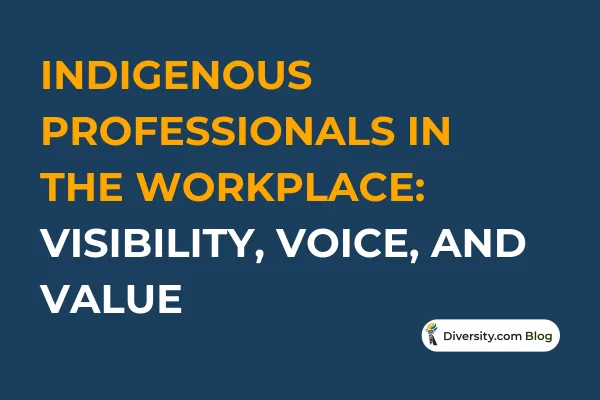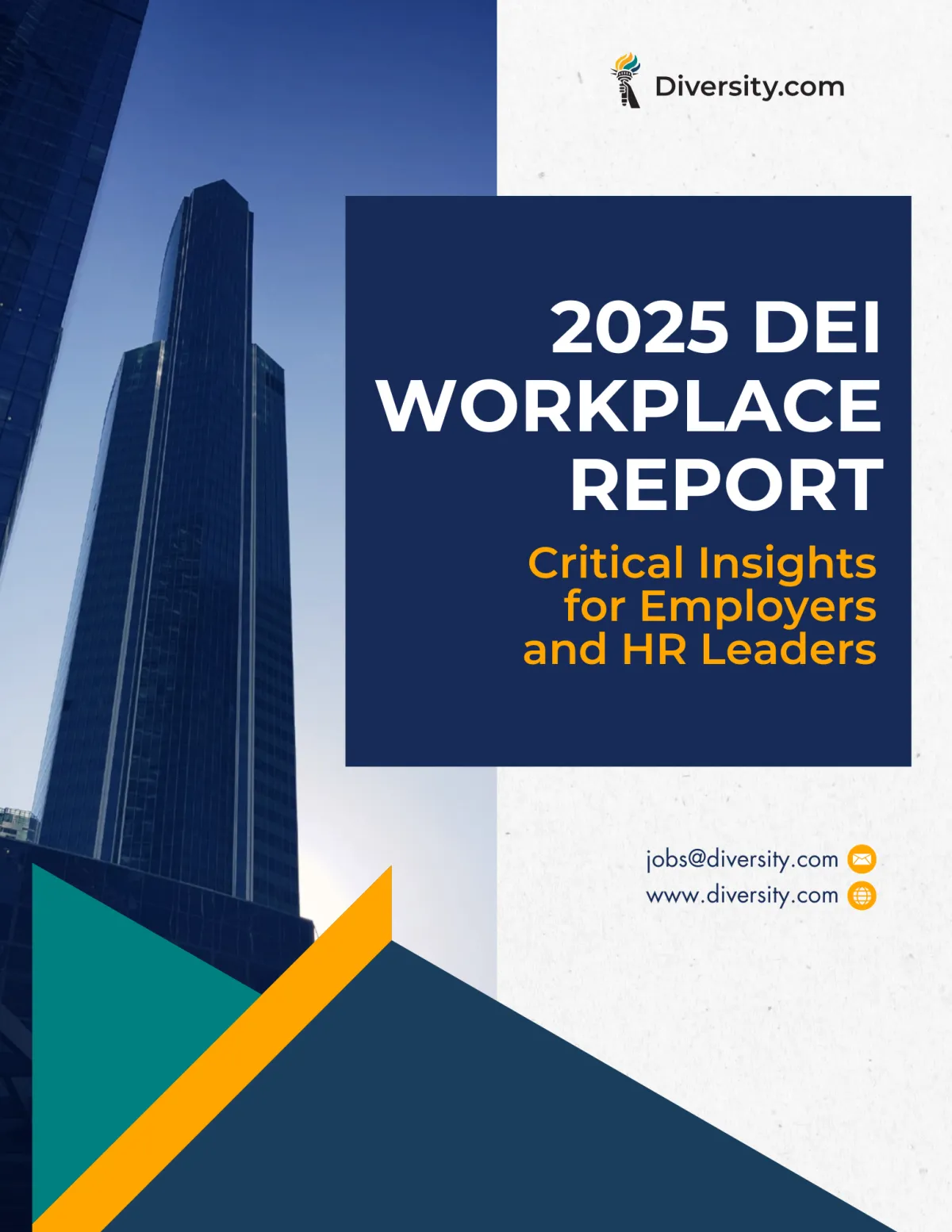
Indigenous Professionals in the Workplace: Visibility, Voice, and Value
Centering a Community Often Left Out
August 9 marks the International Day of the World’s Indigenous Peoples, a global observance honoring the rich cultural heritage, resilience, and contributions of Indigenous communities.
In the U.S., it’s an important moment to reflect on how Indigenous professionals experience the modern workplace, and how often they are overlooked in both DEI strategies and recruitment efforts.
Visibility matters. But so does voice, value, and real opportunity. Representation cannot begin and end with a checkbox.
For Indigenous talent to thrive, inclusion has to be intentional, informed, and sustained.
The Landscape: Where Are Indigenous Professionals?
According to the U.S. Bureau of Labor Statistics, Native Americans and Alaska Natives make up less than 1% of the U.S. workforce: a figure that has remained largely stagnant.
Representation is even lower in management, tech, and leadership roles.
Some of the challenges Indigenous professionals face include:
Geographic barriers tied to hiring practices concentrated in urban centers
Lack of visibility in corporate DEI reporting and outreach
Cultural erasure, where identity is not acknowledged or supported in workplace norms
Higher unemployment rates and lower access to professional development resources (U.S. Department of Labor, 2023)
Many organizations want to be more inclusive. But without specific strategies that address the needs of Indigenous professionals, inclusion efforts risk reinforcing existing gaps.
What Inclusion Looks Like in Practice
1. Build Relationships with Indigenous Communities
Don’t wait for applications to come in. Partner with tribal colleges, Indigenous professional networks, and advocacy organizations to build two-way trust.
2. Feature Indigenous Voices
Representation isn’t only about headcount. Elevate Indigenous professionals in internal comms, panels, ERGs, and storytelling initiatives. Let visibility be self-defined, not tokenized.
3. Rethink Where You Recruit
Standard job boards won’t reach everyone. Post roles in platforms focused on Native and Indigenous job seekers, and ensure that job descriptions don’t assume monocultural norms.
4. Acknowledge Land and History
Land acknowledgments and Indigenous heritage education should be a starting point—not an ending one. Pair them with action: hiring goals, internships, and leadership investment.
5. Compensate Emotional Labor
Don’t expect Indigenous employees to carry cultural representation without support or recognition. If someone is advising on DEI internally, that’s expertise and it should be compensated.
Avoiding Performative Inclusion
It’s not enough to “include” Indigenous professionals in hiring numbers. What matters is how they’re welcomed, supported, and elevated once inside.
DEI plans that ignore Indigenous voices contribute to a broader pattern of erasure and fail to build real trust.
Inclusion starts with listening. It continues with structural change.
Final Thoughts
Indigenous communities bring deep knowledge, leadership, and resilience to every industry. But too often, those contributions go unseen or undervalued in hiring systems.
This coming August 9, honoring the International Day of the World’s Indigenous Peoples isn’t just about visibility. It’s about commitment: long-term, resourced, and informed by the people it claims to serve.
How Diversity.com Supports Inclusive Hiring
At Diversity.com, we know that inclusive hiring isn’t about lowering standards—it’s about raising the bar and removing outdated filters that limit potential.
That’s why we equip employers with the tools, strategies, and talent pipelines to build teams that are qualified, diverse, and forward-thinking—without compromising on excellence.
Whether you're refining your recruitment process, improving retention, or navigating new DEI challenges, we’re here to support your mission with real solutions and real results.
For Employers & HR Professionals:
✔ Create a free employer account — Start posting jobs that reflect your values. Choose from single listings, job packs (discounted credit bundles), or subscription plans tailored to your hiring needs.
✔ Access a diverse, top-tier candidates — Connect with professionals who bring both qualifications and fresh perspectives to your team.
✔ Stay informed with expert DEI insights — Learn how to apply inclusive strategies without sacrificing performance.
For Job Seekers:
✔ Explore inclusive career opportunities — Discover employers that care about merit, culture, and impact.
✔ Create a free job seeker account — Apply confidently for jobs with companies that believe in equity.
✔ Understand Inclusive Hiring — Learn how DEI really works—and how it can work for you.
We don’t lower standards. We eliminate the barriers that keep talent hidden.
Start building a better, bolder team today—with Diversity.com.
Questions? Contact Us, and we'll walk you through it.
Related Articles
Supporting Black Talent Beyond the Hashtag: Real Hiring Commitments That Matter
Building Age-Inclusive Hiring: Tapping the Power of Experience
Mental Health Support That Goes Beyond the Employee Handbook
Sources & References
U.S. Department of Labor. (2023). Employment status of the civilian noninstitutional population by race, Hispanic or Latino ethnicity, and sex, 2023 annual averages. https://www.bls.gov
American Indian College Fund. (2023). Creating pathways for Native American success. https://collegefund.org
Native American Jobs. (2024). Connecting Indigenous professionals with inclusive employers. https://nativeamericanjobs.com
First Nations Development Institute. (2022). Workforce inclusion and tribal economy studies. https://www.firstnations.org

